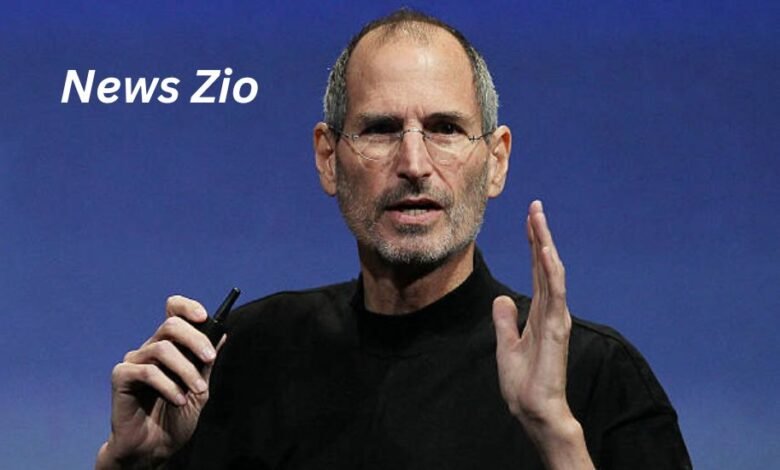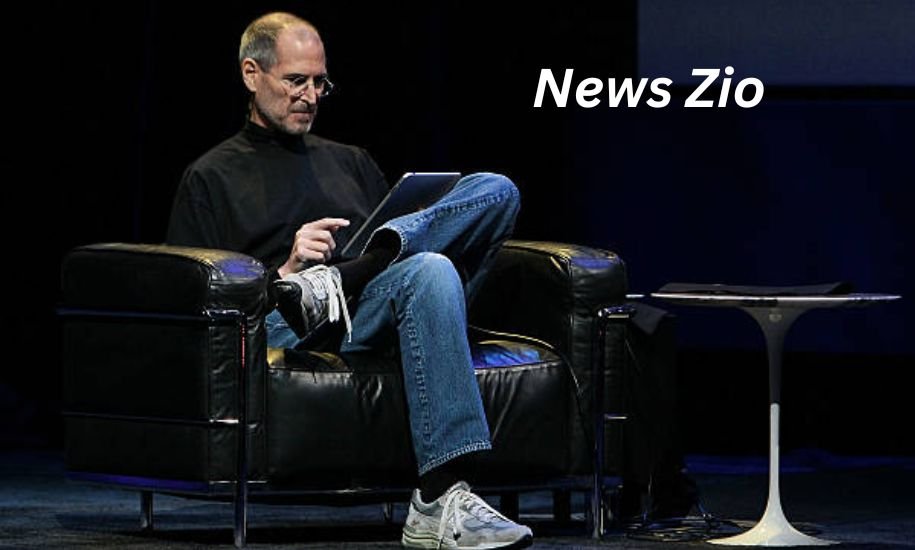Steve Jobs Net Worth: Then, Now, and Who Inherited His Fortune

Few figures in modern history have reshaped technology, culture, and business quite like Steve Jobs. As the co-founder of Apple Inc., the driving force behind Pixar’s rise, and a visionary in digital design, Jobs left behind not only an enduring legacy of innovation but also a fortune that continues to draw attention years after his death in 2011.
This article explores in depth the most frequently asked questions about Steve Jobs’ financial legacy: Who inherited Steve Jobs’ money? Was Steve Jobs rich when he died? Would Steve Jobs be a billionaire today? What would Steve Jobs’ net worth be if he was still alive?
Steve Jobs’ Net Worth at the Time of His Death
When Jobs passed away on October 5, 2011, after a long battle with pancreatic cancer, his net worth was widely reported to be around $6.7 to $7 billion. Some later sources cite estimates closer to $10 billion, but the conservative consensus from Bloomberg and other financial outlets placed the figure closer to $7 billion.
Unlike many tech titans of his era, Jobs’ wealth did not stem solely from Apple stock. Surprisingly, at the time of his death, Disney—not Apple—was the larger component of his fortune.
-
Apple holdings (2011): Jobs owned about 5.5 million Apple shares, valued at approximately $2.1 billion.
-
Disney holdings (2011): Jobs held about 138 million Disney shares, received after Disney’s acquisition of Pixar in 2006. Those shares were worth roughly $4.4–4.6 billion in 2011.
-
Other assets: Jobs had additional cash, real estate, and investments, but the majority of his fortune was tied to Apple and Disney.
Put simply: yes, Steve Jobs was very rich when he died. He was not just a billionaire, but one of the wealthiest individuals in the world.
Who Inherited Steve Jobs’ Money?
Steve Jobs was a famously private person, but details of his estate are public enough to answer this key question. The majority of Jobs’ wealth transferred to the Steven P. Jobs Trust, overseen by his wife, Laurene Powell Jobs.
Powell Jobs inherited:
-
The full Disney stake, which made her the largest individual Disney shareholder at the time.
-
Jobs’ Apple shares and other assets.
Laurene Powell Jobs, now a billionaire philanthropist in her own right, has since diversified and reduced the Disney stake. By 2017, the trust had cut its Disney holdings roughly in half, to around 64 million shares. Powell Jobs has also made it clear in interviews that she does not intend to build a dynasty of inherited wealth, instead committing significant funds toward philanthropy, education, and social causes.
Thus, the answer is clear: Steve Jobs’ money was inherited primarily by his wife, through the trust, and continues to be managed and reshaped under her leadership.
Would Steve Jobs Be a Billionaire Today?
This question is simpler than it may appear. The short answer: Yes—he already was a billionaire when he died, and he would absolutely still be a billionaire today.
If Jobs had never sold any shares and retained his 2011 stakes, his fortune today would dwarf his already impressive 2011 wealth. Apple’s meteoric rise in the 2010s and 2020s transformed millionaires into billionaires, and billionaires into megabillionaires.
What Would Steve Jobs’ Net Worth Be If He Was Still Alive?
This is perhaps the most fascinating hypothetical. To answer it, we must adjust Jobs’ known shareholdings for stock splits and today’s market prices.
-
Apple shares: Jobs’ 5.5 million shares in 2011 went through Apple’s 7-for-1 split in 2014 and 4-for-1 split in 2020. That means his stake would equal ~154 million shares today. With Apple trading near $255 per share in September 2025, this stake alone would be worth around $39.4 billion.
-
Disney shares: Jobs’ 138 million Disney shares would still exist if untouched. With Disney trading near $112 in September 2025, this holding would be worth about $15.5 billion.
Total (ignoring taxes, dividends, sales, or philanthropy):
≈ $55 billion.
That figure would place Jobs among the 30–40 wealthiest individuals in the world today, alongside moguls like Michael Dell and Phil Knight.
Of course, this is a theoretical exercise. Realistically, Jobs might have sold shares, reinvested, or directed more of his fortune into philanthropy. Still, the calculation shows the staggering financial power he could have wielded had he lived another decade and a half.

The Unique Structure of Steve Jobs’ Wealth
What makes Jobs’ wealth story different from peers like Bill Gates, Jeff Bezos, or Elon Musk is its structure.
-
Apple: Despite founding the company, Jobs never controlled a massive share of Apple stock after his return in the late 1990s. His 5.5 million shares in 2011 were significant, but far less than what modern CEOs hold.
-
Disney: Jobs’ real windfall came from Pixar, the animation studio he bought from George Lucas for $10 million in 1986. When Disney acquired Pixar in 2006 for $7.4 billion, Jobs became Disney’s largest individual shareholder overnight. In other words, his vision for digital storytelling proved more lucrative than his stake in Apple itself.
-
Philanthropy and restraint: Unlike Gates or Buffett, Jobs did not establish a high-profile foundation in his lifetime. After his death, Laurene Powell Jobs took up that mantle, pledging to donate billions to education, social justice, and the environment.
Was Steve Jobs Rich When He Died? A Closer Look
The answer is an emphatic yes, but the nuance is worth emphasizing. Jobs’ wealth was not “cash-rich” in the sense of liquidity. His assets were heavily concentrated in equities, making him what financial analysts call “paper rich.”
Yet, he lived a relatively modest lifestyle compared to many billionaires:
-
His Palo Alto home was elegant but not a sprawling mansion.
-
He famously wore the same black turtleneck, jeans, and sneakers daily.
-
Jobs invested in design, products, and people, rather than yachts and luxury estates.
This paradox—immense billionaire wealth, coupled with a minimalist lifestyle—has shaped much of his posthumous image.
Would Steve Jobs Be Richer Than Today’s Tech Titans?
Compared to figures like Elon Musk (whose net worth has ranged from $200–250B) or Jeff Bezos (often above $150B), Steve Jobs’ hypothetical $55B fortune would be smaller. However, it’s important to note:
-
Jobs’ impact on culture and technology arguably surpasses many who are richer.
-
His relatively smaller stake in Apple compared to what founders like Bezos held in Amazon explains why he would not top the billionaire list today.
Nonetheless, he would certainly be counted among the ultra-rich elite of the 21st century.
Legacy Beyond Net Worth
While discussions of Steve Jobs’ net worth fascinate investors and fans, it is worth remembering that his true legacy lies elsewhere. Jobs’ vision brought to life:
-
The iPhone, which revolutionized global communication.
-
Pixar, which redefined animated cinema.
-
Apple’s ethos of design, merging technology and art.
His wealth was significant, but his ideas reshaped industries worth trillions.
Conclusion
So, to summarize:
-
Who inherited Steve Jobs’ money? His wife, Laurene Powell Jobs, through the Steven P. Jobs Trust.
-
Was Steve Jobs rich when he died? Absolutely—he was worth about $7 billion in 2011.
-
Would Steve Jobs be a billionaire today? Yes, and by a wide margin.
-
What would Steve Jobs’ net worth be if he was still alive? Around $55 billion today, based on his Apple and Disney holdings.
Steve Jobs’ fortune is a story of vision, timing, and legacy. More than a decade after his passing, both his wealth and his influence continue to shape the world.
Published with insights and analysis on News Zio



